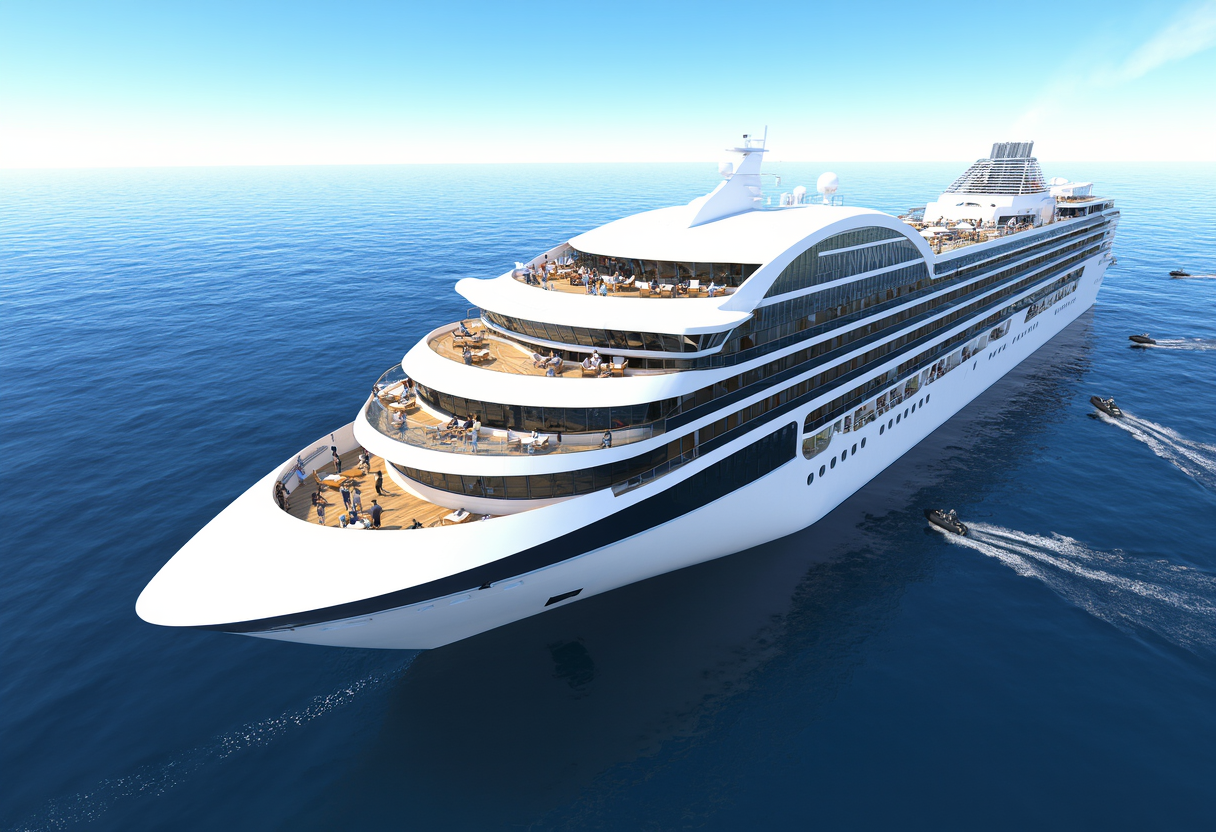Exploring Evolution: The Future of Cruise Tourism Experiences
Cruise tourism is evolving rapidly, driven by changing traveler expectations and technological advancements. This article explores the innovations reshaping the cruise industry, from personalized itineraries to digital enhancements, paving the way for immersive travel at sea. Understand the key factors influencing the next generation of cruise tourism experiences.
Understanding the Evolution of Cruise Tourism Experiences
Cruise tourism experiences have undergone a significant transformation, aligning with modern travelers' expectations. Today's travelers prioritize personal experiences and memorable adventures over standardized itineraries. Consequently, cruise lines have begun offering customized packages to incorporate unique local cultural aspects and traveler preferences. This shift not only enhances satisfaction but also fosters deeper connections with destinations visited. By understanding the diverse interests of passengers, cruise tourism can thrive, engaging a broader audience seeking personalized journey narratives. Thus, the evolution of cruise tourism experiences reflects a fundamental change in the way leisure travel is perceived.
Technological Innovations Shaping Cruise Tourism
The rapid advancement of technology plays a crucial role in reshaping cruise tourism. Innovations such as artificial intelligence and virtual reality enhance the quality of the onboard experience. Moreover, smart ship technologies allow for increased efficiency in operations while improving guest interactions. Passengers can enjoy upgraded services, including real-time itinerary updates and seamless onboard payments. Additionally, leveraging social media and personalized marketing enhances engagement before and during voyages. The integration of technology within cruise tourism is thus a catalyst for growth, creating enriched experiences that keep pace with changing preferences.
Enhancing Guest Engagement Through Personalization
As expectations evolve, the demand for personalized engagement becomes more pronounced in cruise tourism. Passengers can expect tailored excursions ranging from adventure tours to culinary experiences guided by local experts. This focus on personalized journeys allows travelers to craft their ideal getaway while fostering connections with local communities. Furthermore, onboard activities are becoming increasingly diverse, appealing to various interests and age groups. By catering to individual preferences, cruise tourism reinforces its appeal in a competitive landscape. Consequently, personalization emerges as a core component of the cruise experience, enhancing customer satisfaction and retention.
The Importance of Health and Safety in Cruise Tourism
In a post-pandemic world, health and safety have taken center stage in cruise tourism. Passengers are now seeking assurance in hygiene protocols and safety measures before booking voyages. Enhancements such as increased sanitation, air filtration systems, and reduced passenger capacities have become commonplace. Cruise lines are proactively communicating these measures to assure travelers of their commitment to safety. Moreover, transparent reporting of health incidents onboard is crucial in restoring consumer confidence. In this new landscape, prioritizing health and safety will be essential to the cruise industry's recovery and growth, ultimately dictating market success.
Future Trends Redefining Cruise Tourism
Looking ahead, several key trends are poised to redefine cruise tourism. Sustainable practices will remain at the forefront, alongside a growing interest in small-ship cruises that emphasize exploration and immersion. Additionally, virtual and augmented reality experiences could enhance the way passengers interact with destinations. Innovations in smart technology will continue to refine operations and enhance guest experiences. Furthermore, as cruise tourism becomes increasingly accessible, attracting diverse generations of travelers will enrich the industry’s tapestry. These trends illuminate the path forward, ensuring cruise tourism remains at the cutting edge of leisure travel.
Conclusion: Charting the Future of Cruise Tourism Experiences
Ultimately, the evolution of cruise tourism experiences reflects broader trends in travel. A focus on personalization, sustainability, and technological advancements will shape the industry's future. By embracing these principles, cruise tourism can adapt to changing consumer expectations while maintaining its appeal. As the industry navigates this complex landscape, creating innovative, individualized experiences will define its success. Therefore, fostering deeper connections between travelers and destinations will be crucial for the viability of cruise tourism in a fiercely competitive market. The future of cruise tourism is bright, as it promises enriching experiences for generations to come.
